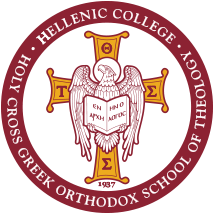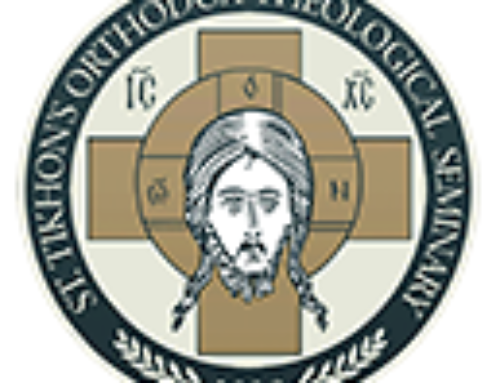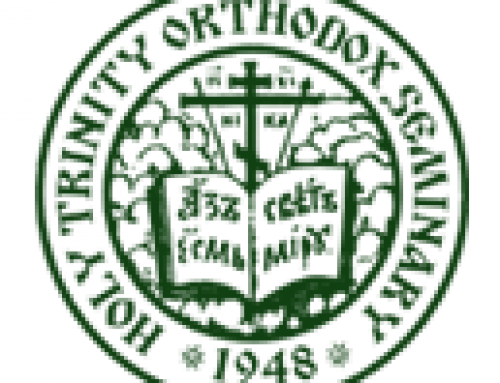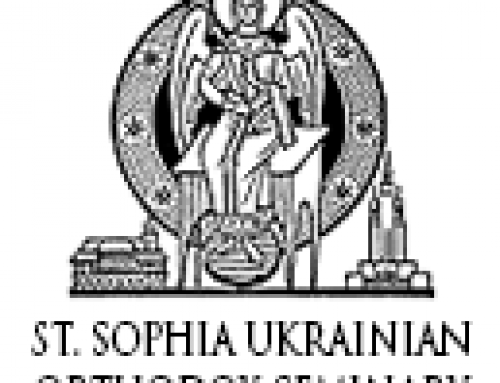This post was originally published on this site

Homily from Holy Thursday – April 13, 2017
Dr. Lewis J. Patsavos
Professor of Canon Law, Emeritus
“Peace I leave with you, my peace I give to you; not as the world gives do I give to you. Let not your heart be troubled, neither let it be afraid” (Jn 14:27).
The peace promised us by our Lord shortly before His passion does not mean simply the absence of discord. It means everything which contributes to our highest good. The peace which the world gives is the peace of escape for a time, the peace which comes from the avoidance of danger and trouble. The peace our Lord offers is the peace of conquest. Nothing in this life can ever take it from us and no sorrow, no suffering, no crisis can ever make it less.
As we ponder the chaotic state of the world, these words of promise and hope stand in dramatic contrast to the sobering reality which is the paradox of humanity. In fact, there is scarcely a moment in history when the paradox of humanity does not become apparent. This is especially true in this time of uncertainty when the threat of terrorism and violence at home and abroad surrounds us. On the one side there are voices of pessimism, helplessness and despair. And on the other side, there emerges – sparingly at first – the conviction of the basic goodness of humanity. On every side we meet this paradox – the fact that human beings are helpless sinners, capable of destroying themselves and the world in which they live, and that they are somehow close to God.
This paradox appears in all its sharpness in the teaching of our Lord and in His view of humanity. No teacher ever had a higher view of humanity. That is proved by His entire method of approach. No one ever gave such commands, or presented such challenges, or confronted with such invitations. We have only to remember how much of His teaching and speaking consists of imperatives, such as that heard in the Gospel of St. Mark: “If any man would come after me, let him deny himself and take up his cross and follow me” (Mk 8:34). There is no point in issuing commands, challenges and invitations, if there is no possibility of response. Our Lord expected a response, because He fulfilled His mission on the assumption that every person is a child of God. He believed that everyone could make a response, even if it required His own death on the cross to make that response possible.
But that is not to say that He thought lightly of the evil of which human beings are capable. He did not see humanity in an idealized way. The very fact that He came into the world to live and die is proof of the desperate case of humanity, entangled in sin. The problem of humanity is sin – a word scarcely heard today, certainly not in the secular world in which we live. And the essence of sin is to demote God and to arrogantly promote ourselves; it is to act our way instead of His way. The dreadful consequence is that, if a person does that long enough, he/she reaches the point when he cannot recognize God’s voice when he hears it, nor sense His presence when he confronts it.
Our Lord’s view of sin differed radically from those who preceded Him. To understand this, we must look at the sins most sternly condemned. At the same time, we must understand that these seemingly harmless sins, if unchecked, lead to the degree of evil now encompassing us. He sternly condemned self-righteousness. To be conscious of no sin or wrongdoing is in itself sin. This is especially so when the consciousness of virtue brings with it contempt for those regarded as sinners.
He sternly condemned externalism. In His day as in ours, virtue was identified by some with certain external acts – abstention from certain foods, elaborate rules regarding rituals, strict formalities about worship, meticulous giving of tithes, etc. These are not bad in themselves, provided they are performed with the proper intention and spirit. However, virtue has little to do with the physical condition of a person’s hands. It has everything to do with the spiritual condition of a person’s heart. No external act, least of all conventional religious acts, of itself constitutes virtue.
The sin condemned most often was that of hypocrisy – saying the right words without performing or really believing them. As taught by our Lord, a tree is known by its fruit and a person by his deeds (Mt 7:19-20). It is here that we come to the core of his conception of sin. Sin is an attitude of the heart. It may very well be that a person’s outward actions are beyond reproach, but that does not necessarily make him a good person. The deciding factor is the attitude of his heart.
This means that only God can judge us, for He alone sees the secrets of our hearts. It means that many a person confronts the world with the outward appearance of unimpeachable conduct; he/she is full of good deeds; his attitude appears to be that of Christian charity and forbearance; no one can detect in him the slightest trace of immorality. But beneath the surface, there smolders a fire of burning desire, of secret pride, of hidden bitterness, of concealed vengeance, of envy, greed, self righteousness and ingratitude, which God alone knows. A person can confront the world with the outward conduct of a saint, while within him there is the heart of a devil. There are, in any event, very few who would willingly reveal the inner workings of their thoughts and desires.
Nor must it be forgotten that the other side of the matter is also true. A person may appear to the world to be a shameless sinner, and yet in his/her heart may hate his sin and yearn for forgiveness. Only God can see the evil desires that are forever festering within us. And only He can see the wistful yearnings which somehow never come to action. Therefore, only He can judge.
If all this is true, it means that God is the only cure for evil and sin in the world. It is a truth of life that a person may master his actions, but can never by himself master his thoughts and desires. The more he tries, the worse his state becomes. For that he needs some power beyond himself. The only cure for evil and sin, the only solution to the paradox of humanity, is the indwelling power of God, ever readily available to those who seek it. A person attains this sublime state and thereby reaches his true humanity, only when he can say with the Apostle Paul: “It is no longer I who live, but Christ who lives in me” (Gal 2:20).
In the final analysis, that which matters most is not the actualities of men and women, but their potentialities. The important thing is not so much what they are, but what they can become. Our Lord is fully aware of humanity’s susceptibility to evil and sin. That is why He came into the world, suffered and was crucified. But at the same time he believes in men and women with complete confidence – provided they accept the offer He extends – His peace: “Peace I leave with you. My peace I give to you; not as the world gives do I give to you. Let not your heart be troubled, neither let it be afraid” (Jn 14:27).
May this peace abide in us as we approach the holiest of days leading to Pacha, but especially in these dangerous times of crisis and uncertainty. And may each of us address the paradox of humanity by diminishing in our own lives the evil and sin which surround us. AMEN.




